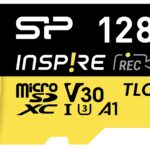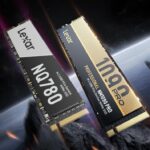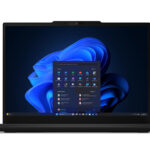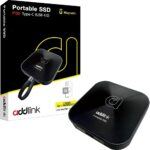Install 4MLinux 48.0 to breathe new life into your old computer

Let’s be honest, y’all -- it is pretty easy to feel overwhelmed by everything going on these days. Bad news seems to hit from every direction, leaving many people feeling helpless or anxious. But believe it or not, there is a simple, satisfying way to take back a little bit of control -- by breathing new life into an old computer with a refreshing Linux distribution such as 4MLinux.
You see, the new 4MLinux 48.0 series has officially been declared stable (download here), and it brings a whole lot to the table for such a lightweight operating system. Whether you want to write documents in LibreOffice 25.2 or GNOME Office (featuring AbiWord 3.0.5, GIMP 2.10.38, and Gnumeric 1.12.59), this little distro has you covered. Browsing the web is easy too, with both Firefox 137.0 and Chrome 135.0 ready to roll. Thunderbird 128.9 is there if you still prefer handling email the old-fashioned way.
Brave open sources Cookiecrumbler to make cookie consent blocking smarter

Brave just made a move that should make privacy enthusiasts pretty happy. The company has officially open sourced Cookiecrumbler, a tool designed to automatically detect and help block those obnoxious cookie consent banners you see across the Web. These pop-ups are not only annoying but, according to research, often track users even when they click reject. Cookiecrumbler aims to stop that nonsense while avoiding the headaches that can come with sloppy blocking rules.
Lately, Brave has been my go-to web browser. It’s open source, cross-platform, and runs beautifully on Linux, which I appreciate as a Linux fan. Even better, it handles ad-blocking on iOS -- something many other browsers don’t offer. And perhaps most importantly, it does all of this without relying on Google.
Here’s why I reserved the affordable and customizable Slate electric pickup truck

The electric truck market is loaded with options these days, but most of them feel like they are designed for people who want to show off rather than actually get things done. Between all the oversized touchscreens, fancy features, and prices that could make your head spin, I found myself turned off by a lot of the choices out there. That is why the Slate Truck caught my eye -- and why I did not hesitate to put down my $50 to reserve one.
This unique truck takes a very different approach from the big names in the industry. It is all about simplicity and affordability. No giant infotainment screen. No powered seats or overly complicated tech to get in the way. Instead, you get steel wheels, crank windows, real knobs for the HVAC, and the freedom to bring your own phone or tablet to handle navigation and music. I actually respect that. It puts control back where it belongs -- with the driver.
Silicon Power launches Inspire microSDXC card

When it comes to capturing high-res video or running games on portable devices, storage performance can often be the deciding factor between smooth success and frustrating failure. Silicon Power is looking to give creators and gamers a reliable solution with the launch of its all-new Inspire microSDXC card.
The Inspire card is available in four capacities -- 128GB, 256GB, 512GB, and 1TB. The company says this card can hit maximum read speeds of up to 170MB/s. Write speeds will vary by model, with the 1TB version reaching up to 160MB/s and the 128GB, 256GB, and 512GB capacities topping out at 150MB/s.
Volkswagen and Uber bring self-driving ID. Buzz electric vans to Los Angeles

Volkswagen is making a serious push into the world of autonomous vehicles, and it is teaming up with Uber to help drive that effort forward. The two companies have announced a partnership that will put Volkswagen’s ID. Buzz AD vans (fully autonomous, all-electric versions of its iconic Microbus) on American streets as robotaxis. The rollout will begin in Los Angeles, with testing set to start later this year and commercial service planned for 2026.
While the plan is for these vehicles to operate without drivers, don’t worry -- there will still be human operators on board during the early phases of testing and launch. This approach is designed to help fine-tune the technology and ensure rider safety while waiting on necessary regulatory approvals.
Lexar launches NQ780 and NM1090 PRO SSDs with blazing speeds for gamers and creative pros

Lexar is looking to shake up the solid state drive market with the debut of two new high-performance NVMe SSDs. The company has released the NQ780 PCIe 4.0 SSD and the Professional NM1090 PRO PCIe 5.0 SSD, both aimed at gamers, content creators, and anyone who demands fast storage. Even better, both drives are available for purchase on Amazon right now.
The NM1090 PRO stands out as the flagship option, pushing PCIe Gen 5 storage to impressive new heights. Depending on which capacity you choose, this SSD can hit read speeds up to 14,000MB/s and write speeds up to 13,000MB/s. The 2TB and 4TB models both offer up to 2100K IOPS for random reads, while random write speeds can reach as high as 1800K IOPS. Even the 1TB model holds its own with 14,000MB/s reads and 10,000MB/s writes. It’s built using a 6nm controller to help keep heat in check and performance stable.
Google reveals ZAPBench to predict brain activity in zebrafish and unlock new AI-powered neuroscience research

If we are lucky, Artificial intelligence might one day help scientists understand the human brain the same way language models predict the next word in a sentence. And now, that future is closer to becoming reality thanks to a new project from Google Research, Harvard University, and HHMI Janelia. You see, these teams have introduced the Zebrafish Activity Prediction Benchmark, better known as “ZAPBench,” which could help researchers create more accurate models for predicting brain activity.
ZAPBench isn’t just another dataset, folks. Actually, this new tool is based on two hours of brain recordings from larval zebrafish, capturing how roughly 70,000 neurons fired in response to different virtual reality scenarios. These tiny fish were shown various environmental changes, including shifting light patterns and moving water currents, while researchers recorded brain activity at an impressively detailed scale.
Hackers can now bypass Linux security thanks to terrifying new Curing rootkit

Most Linux users assume their security tools will catch bad actors before damage is done -- but sadly, new research suggests that confidence may be misplaced. You see, ARMO, the company behind Kubescape, has uncovered what could be one of the biggest blind spots in Linux security today. The company has released a working rootkit called “Curing” that uses io_uring, a feature built into the Linux kernel, to stealthily perform malicious activities without being caught by many of the detection solutions currently on the market.
At the heart of the issue is the heavy reliance on monitoring system calls, which has become the go-to method for many cybersecurity vendors. The problem? Attackers can completely sidestep these monitored calls by leaning on io_uring instead. This clever method could let bad actors quietly make network connections or tamper with files without triggering the usual alarms.
Roku reveals its own battery-powered smart home cameras with TV integration

Roku is going in a new direction with its latest smart home products, stepping away from the rebadged Wyze cameras it offered in the past. This time, the company is rolling out security cameras designed entirely in-house. The new Roku Battery Camera and Roku Battery Camera Plus promise easier installation, longer battery life, and deep integration with the Roku ecosystem.
These weather-resistant cameras are built to work indoors or outdoors, and because they run on rechargeable batteries, there’s no need to mess around with power cables. Roku also plans to offer a solar panel accessory, giving users the option to keep the batteries topped off without manual charging. According to the company, the standard Battery Camera can last up to six months per charge, while the Plus model could go as long as two years before needing to be recharged.
TCL D1 Fingerprint Smart Lock offers fast unlocking and local data storage for privacy-focused homeowners

If you’ve been thinking about upgrading your front door with a smart lock but don’t want your data floating around in the cloud, TCL may have the perfect solution. You see, the company has officially launched its D1 Fingerprint Smart Lock, a product designed to make home security both simple and private -- and yes, it is available to buy right now from Amazon for $89.99.
One of the big selling points is speed. The D1 uses a Swedish-made FPC fingerprint sensor with 508 DPI resolution, unlocking your door in just 0.3 seconds. TCL also worked an AI self-learning algorithm into the mix, which means the lock is supposed to get better at recognizing your fingerprint over time, even if your fingers are wet or dry.
Lenovo launches new ThinkPad laptops and workstations with Ryzen AI and Copilot+ for Windows 11

ThinkPad computers are absolutely legendary, and today Lenovo is expanding its lineup with a fresh batch of laptops and mobile workstations. The company has announced updates across several models, including the ThinkPad P14s Gen 6 AMD, ThinkPad P16s Gen 4 AMD, new L Series business laptops, and additional configurations for its X1 Aura Editions.
Leading the charge are the new ThinkPad P14s Gen 6 AMD and P16s Gen 4 AMD mobile workstations. These machines aim to offer a balance of power and portability, with the P14s weighing in at just over 3 pounds and measuring 16.13mm thin.
OpenMandriva Lx 6.0 brings KDE Plasma 6 and Proton for running Windows games on Linux

The folks behind OpenMandriva have officially released version 6.0 of their Linux distribution. This is the fixed-point “Rock” release, and not the rolling edition, so it is all about stability rather than chasing the latest experimental packages.
KDE Plasma 6 is the star of the show here, serving as the default desktop environment. Users can choose between X11 or Wayland sessions, but there’s a catch. If you plan to run OpenMandriva Lx 6.0 in VirtualBox, X11 is strongly recommended. The team warns about problems with Wayland on VirtualBox’s emulated GPU, though things work fine on real hardware or in QEMU with KVM. For VirtualBox, don’t forget to set VMSVGA to avoid boot issues.
Acer launches Chromebook Plus 516 with Intel Core i3 and 16-inch display

Acer has officially launched the Chromebook Plus 516 (CB516-1H), a brand-new ChromeOS laptop that delivers a large display and Intel Core performance. To clarify, this is not the Chromebook Plus 516 GE model built for cloud gaming -- this is an entirely new machine.
The CB516-1H-31UE configuration currently available comes equipped with a 13th-generation Intel Core i3 1315U processor, featuring six cores with a boost clock up to 4.5GHz. The laptop pairs that CPU with 8GB of LPDDR5 RAM and 128GB of UFS storage. This combination should be fine for typical Chromebook workloads like web browsing, document editing, and video streaming.
addlink launches P30 USB 4.0 magnetic SSD with blazing speeds and MagSafe support

When it comes to portable storage, it is easy to get overwhelmed by all the choices nowadays. Thankfully, a new addlink solid state drive is something that stands out from the pack. You see, the company’s new P30 USB 4.0 Super-Speed Magnetic SSD is here, and it offers a mix of speed, portability, and a clever design.
Thanks to USB 4.0 technology, the P30 is capable of impressive transfer speeds up to 4000MB/s. To put that into perspective, you can move a 10GB file in about 2.5 seconds. That kind of speed can be a godsend, especially for those working with large 4K video files, raw photo collections, or massive game libraries.
Install Linux on your old PC to save it from the landfill this Earth Day

Earth Day is tomorrow, and it is a time to reflect on how we treat the planet we all share (until Elon Musk colonizes Mars, at least). While some people mark the day by picking up trash or planting a tree, there’s another simple yet powerful way to help the environment that you might not have considered -- install Linux on your aging computer instead of tossing it in the trash!
Old computers don’t have to die. In fact, most of them still have plenty of life left in them -- if you’re willing to ditch bloated operating systems that no longer support them. That’s where Linux comes in. Unlike Windows 11, which demands modern processors and fairly high-end specs just to boot, many Linux distributions run smoothly on older hardware. Whether it’s a decade-old laptop collecting dust or a desktop with a failed Windows installation, Linux can breathe new life into machines that would otherwise end up in landfills.
Brian's Bio
Staff Journalist
Ethics Statement© 1998-2026 BetaNews, Inc. All Rights Reserved. Privacy Policy - Cookie Policy.
